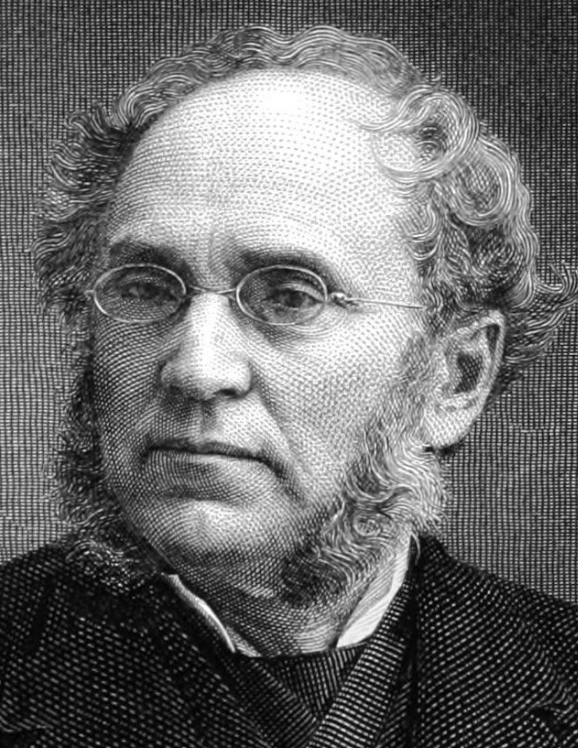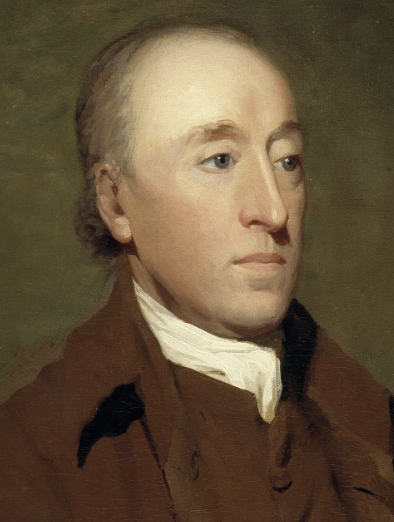June 3
Edward Livingston Youmans

On this date in 1821, Edward Livingston Youmans, freethinker and founder of Popular Science magazine, was born in New York state. A precocious scholar, he continued his studies and inventions even when he was afflicted with ophthalmia at age 13 and was blind for several years. He graduated from Vermont University with a degree in medicine, lectured from 1852 to 1869 on science in the lyceum system and was one of the first popularizers of evolution in the United States.
Youmans founded Popular Science in 1872. Freethought biographer Joseph McCabe called him an “indefatigable worker and comprehensive idealist [who] literally wore out his life in altruistic endeavor.” Youmans’ writings include The Correlation and Conservation of Forces (1864), Alcoholism and the Constitution of Man (1853), A Handbook of Household Science (1857) and The Culture Demanded by Modern Life (1863). Youmans also oversaw the U.S. publication of Herbert Spencer‘s books. (D. 1887)
“He also expressed skepticism about miracles, as infractions of the order of nature requiring much more evidence to make them credible than has ever been produced.”
— "Edward Livingston Youmans, interpreter of science for the people; a sketch of his life, with selections from his published writings and extracts from his correspondence with Spencer, Huxley, Tyndall and others" (by John Fiske, 1894)
James Hutton

On this date in 1726, James Hutton was born in Edinburgh, Scotland. He enrolled at Edinburgh University in 1740 to study law but switched to medicine, earning his M.D. in 1749 in Leiden, in what is now the Netherlands. Hutton never practiced medicine, instead devoting himself in turn to the manufacture of ammonium chloride, the study of new agricultural methods and the construction of canals. Hutton became interested in geology in the 1750s, journeying through England, Wales and Scotland to study rock formations.
One of Hutton’s major contributions to the field of geology was the discovery in 1785 that granite is an igneous, rather than sedimentary rock (formed from cooling magma, not from compacted sediments). Hutton is perhaps best known for the theory of Uniformitarianism, or the idea that the only processes that can have acted on the Earth’s surface are processes we see around us today — for example, erosion, deposition of sediments and volcanic activity.
The prevailing 18th-century theory was Catastrophism: the idea that many great catastrophes, such as floods, caused relatively rapid rock formation and landform change. In England especially, geologists were eager to reconcile their theories with the biblical accounts of Genesis; theories that posited catastrophic floods remained popular because they fit well with the biblical story of Noah. Theories such as Hutton’s, which required vastly more time than the bible allowed, were seen as especially suspect.
Hutton was a deist, who believed that the world had been created for humans’ eventual emergence; however, he did not believe that God interfered in the world, so that the miraculous-seeming events of Catastrophism seemed impossible to him. Hutton explained his geological theories in Theory of the Earth, the first two volumes of which were published in 1795. The third was published posthumously in 1899. He was a famously abstruse writer, whose works were not much read, but John Playfair, his biographer, published Illustrations of the Huttonian Theory of the Earth in 1802, which popularized Hutton’s difficult material.
Hutton never married, living with his sisters for much of his adult life. He did, however, father a child, also named James Hutton, during his student years. (D. 1797)
“The past history of our globe must be explained by what can be seen to be happening now. No powers are to be employed that are not natural to the globe, no action to be admitted except those of which we know the principle.”
— Hutton, "Theory of the Earth," Transactions of the Royal Society of Edinburgh (1785)
Rafael Nadal

On this date in 1986, tennis star Rafael Nadal was born Manacor, Mallorca, one of the Balearic Islands off the coast of Spain. Nadal began playing tennis when he was 3 and is consistently ranked as one of the best tennis players in the world. A lefthander, he represented Spain in the 2008 Olympics in Beijing and won the gold medal in men’s singles. As of this writing in June 2023, he had won 22 Grand Slam singles events (Australian Open, U.S. Open, Wimbledon, French Open). Only Novak Djokovic, with 23, had more. Nadal earned the nickname “the king of clay” because of his success on clay courts, including 14 French Open titles.
Nadal became the face for Emporio Armani Underwear and Armani Jeans in 2011. Shakira also featured Nadal in the music video for her hit song “Gypsy.” Nadal is a soccer fan and his favorite teams are Real Madrid and RCD Mallorca. He married María Francisca (Xisca) Perelló, in October 2019 in Port de Pollença, Mallorca. They had been dating since 2005. He is an active philanthropist. He has helped plant trees in Thailand and has his own nonprofit, Fundación Rafa Nadal, which focuses on helping children in Spain, where he has supported the Special Olympics. The foundation also helped build a school in the Indian state of Andhra Pradesh.
“It’s hard to say, ‘I don’t believe in God.’ I would love to know if God exists. But it’s a very difficult thing for me to believe. … I say, ‘If God exists you don’t need [to cross yourself] or pray.’ If God exists, he’s intelligent enough to [do] the important things, the right things.”
— Nadal, in a Q&A with Sports Illustrated (July 16, 2010)
Kerry King

On this date in 1964, iconoclast and rock musician Kerry Ray King was born in Los Angeles, where he grew up with two older sisters. His father was an aircraft parts inspector, and his mother worked for a phone company. He started playing guitar at age 13. The first song he learned was Ted Nugent’s “Cat Scratch Fever.” He was enamored with artists such as Judas Priest and Eddie Van Halen.
Although they were not religious, his parents suggested, when he was in grade school, that he should check out Sunday school. “[L]ike a week into it, I went to my parents. I’m, like, ‘I don’t think I want to go to this anymore.’ Even that little kid knew it was a bunch of dog shit.” (Consequence.net, June 4, 2024)
King excelled academically and won an award as his school’s top math student in junior high. Then puberty kicked in. “I was really good at school until I discovered girls, and then it was all over. It’s a good thing I didn’t plan on college or anything because I probably would have failed miserably. I was such a smart kid, but once high school came around and girls were in the picture, the grades went south.” (Metal Hammer, Jan. 2, 2019)
In 1981 he formed a “thrash metal” group called Slayer with Jeff Hanneman, Dave Lombardo and Tom Araya. The group disbanded in 2019 and announced several reunion shows in early 2024. Slayer released 12 studio and three live albums, a box set, six music videos and a cover album. Four of its studio albums went gold in the U.S. It earned five Grammy nominations, winning two for songs from the album “Christ Illusion” in 2006.
King’s debut solo album “From Hell I Rise” was released in May 2024. He says he doesn’t believe in God or the devil and calls himself an atheist who thinks religion is “the biggest lie among humanity for centuries.” (Blabbermouth.net, June 25, 2024) He has been divorced twice and has a daughter named Shyanne Kymberlee with his first wife. He is married to Ayesha King, a former model and aerial performer who is also an atheist.
His political views don’t fit neatly into any category. In 2024 he said he was angry about the Supreme Court overturning Roe v. Wade but in the past has praised the archconservative Rush Limbaugh, agreeing that “penalizing the achievers” was poor policy. He said he wouldn’t vote for Bill Clinton, supported a flat tax and criticized people for drawing welfare. “That’s what being an American is about, not sitting on your ass and letting the rich people pay for you. It’s about getting off your ass and accomplishing things.” (Interview with Arsenio Orteza, May 9, 1995)
But in 2017 he said he was “embarrassed about Trump’s presidency,” terming it “divisive and polarizing.” He had called Hillary Clinton “the safe, correct choice” for president, explaining: “Trump is just a sideshow. … I think the reason he’s so popular is because he’s like the politics version of WWE. He’s sensational like wrestling and that’s why middle America loves him. He’s the biggest liar I’ve ever seen in politics.” (Rolling Stone, July 27, 2016)
“I don’t really have a life philosophy; my thing is just rebelling against pretty much organized religion. That is my main thing, because personally I think it’s a crutch for people that are too weak to get through life on their own. I’m the kind of guy that says if I don’t see it, then it doesn’t work. And nobody can show me God.”
— King responding to how his personal philosophy affects his music. (Ultimate Guitar, Aug. 6, 2006)
